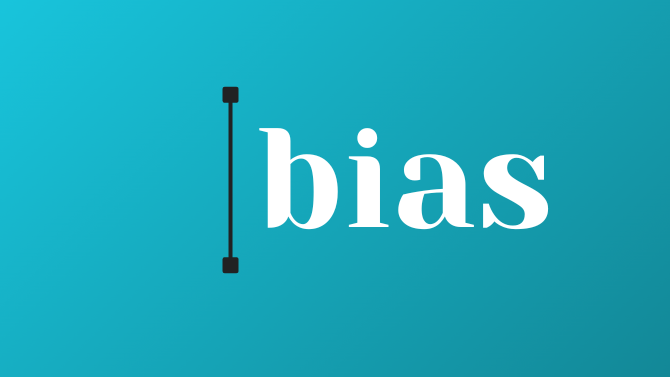
Confirmation bias, the tendency to see data the way we want to see it, impacts how we gather information, but it also influences how we interpret and recall information. This can have a dramatic impact on the decisions you make in business and your ability to be successful.
How does confirmation bias impact your ability to make decisions? That may seem like an odd question, but chances are good that you fall prey to the phenomenon of confirmation bias in one way or another on a regular basis. Confirmation bias describes the tendency to seek out information that confirms our preconceived notions while ignoring data that might challenge them. Confirmation bias impacts how we gather information, but it also influences how we interpret and recall information— and it can even drive us to seek out information that reinforces our existing views.
Confirmation bias, also known as myside bias
What is confirmation bias?
One of our strongest mental tendencies is confirmation bias. We are hard-wired to seek out evidence that supports what we already believe, and ignore or dismiss information that doesn’t line up with our point of view. When it comes to data in business, confirmation bias can be extremely costly if not dangerous. This tendency impacts how we gather information and also how we interpret and recall information.
In other words, those with a strong confirmation bias tend to see only the data they want to see. Rather than questioning your assumptions about business models, products and services — you select facts that fit what you already know to be true. If you want your decision making process to improve, consult those outside your company who haven’t been heavily involved in researching and considering solutions from within your business.
Why does confirmation bias exist?
People tend to be more convinced by the evidence that confirms their beliefs. For example, if you believe that a new drug will treat a particular condition, you are more likely to pay attention to data that supports your view and less likely to pay attention to contrary data. People also tend to interpret ambiguous data in a way that supports their initial view. For example, people who believe in certain types of paranormal phenomena may find themselves interpreting simple events (for example, seeing shadows move across a wall) as support for their belief systems.
Different types of bias
Selective perception, where we filter out information that is at odds with our expectations. Selective memory, where we selectively forget information that doesn’t match up with our preconceived notions. Reactive devaluation, when we discount or ignore information based on what type of person they come from. The more frequently we encounter a certain type of person—the less likely we are to believe them.
What is an example of the bias?
In many cases, it acts as a natural defence mechanism against news we don’t want to hear. For example, you may be inclined to blame your failures on others—the customer is never satisfied, your boss doesn’t fully understand what you do—or view yourself as a victim of circumstances. On its own, bias isn’t necessarily harmful; it’s just part of human nature.
Another example, working on a proposal for a new business and being so convinced that your approach is correct that you find data to back it up. are likely to use numbers that support your preconceived notions, but disregard other potentially relevant numbers altogether. This is also referred to as our inner lawyer because we often create scenarios where data are interpreted in ways that benefit us rather than neutrally. This can lead us astray when trying to make decisions with incomplete information.
How might it negatively affect business?
In many instances, bias might help you make better decisions—if you’re trying to convince yourself that something is true. The problem is when it leads you to selectively seek information that reinforces what you already believe while simultaneously ignoring contradictory data. Research has shown that people who are highly susceptible to bias more often than not suffer from poor analytical skills and a lack of critical thinking.
For business people, it can lead to a serious case of myopia; in other words, it limits your ability to see things clearly and can affect business performance. Which brings us back to our original question: how might confirmation bias negatively affect business?
How can I avoid being affected by confirmation bias?
We all have different ways of gathering information and making decisions, but sometimes our inner biases can get in our way. What’s more, when we’re in a leadership position or are part of a decision-making team that is based on consensus, there are times when confirmation bias can become even more dangerous.
The good news? There are several steps you can take to avoid being affected by your own personal biases or other people’s opinions. For example: Seek out opinions from those who differ from you, especially if they work for a competitor. Also, make sure you gather input from multiple sources, not just one—otherwise, you might be missing out on important facts about your competition or even other solutions available to customers.